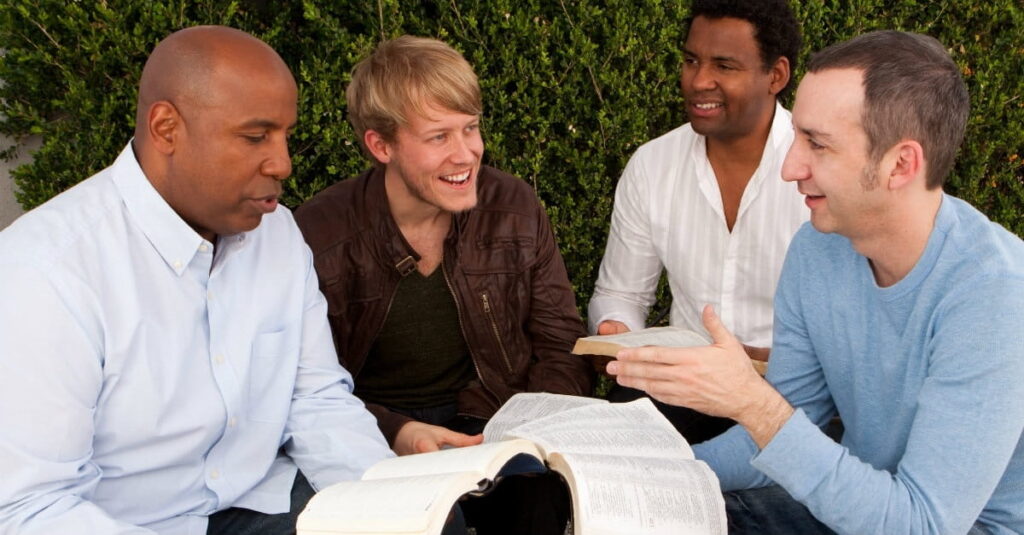From childhood, we are taught about gender roles, and the way we express emotions is based on them. Across cultures, there is a prevailing stereotype that women are “more emotional” than men – and this permits them to display their emotions more freely. These notions are also deeply tied to the concepts of “femininity” and “masculinity.”
For instance, while anger can be freely expressed by men (and women), sadness and crying are seen as “feminine” traits. Parents also tend to discuss emotional issues with daughters while they generally avoid such topics with their sons.
The “Man Box”

The idea of men being traditionally restricted to a range of emotions was explored by the well-known TED speaker, Tony Porter, who formulated the Man Box theory. He also postulated that this concept is largely responsible for gender violence against women. The cultural and social barriers that limit men from giving free expression to all their emotions results in a lack of emotional intimacy, expectations of dominant/aggressive behavior from men, etc.
Men Need Emotional Support Too

While men and boys are traditionally and culturally taught to be providers of emotional support, they rarely recognize the need for such support in themselves. They are trained to provide solutions to problems and tend to see discussions in this light. However, women often enter discussions with the expectation of sharing viewpoints, getting opinions, and not solutions and often for a session of emotional venting.
When these expectations are not met, it is the man who is often blamed for “not getting it,” and in time, men tend to avoid such situations because they expect to fail. The ultimate result is that women feel men cannot be depended upon emotionally, and women fall back on their trusted girl-friends to fulfill this role.
But does this mean that men don’t feel things? Researchers find very little difference in the experience of emotions, but the major factor that comes into play is the expression of emotions. “Boys don’t cry” “Don’t act like a girl” “Don’t be a sissy” are messages that men pick up from a very young age. They learn early to bottle up emotions that are not socially acceptable, which can lead to a toxic build-up in the long run.
Men’s support groups are gaining ground today mainly due to the strongly felt need for space where men can comfortably and safely express emotions in their own way and receive the right kind of advice and assistance from those who approach problems in the same way.
What Is A Men’s Support Group?

These support groups are all-male, and they meet regularly with either a focused goal, or to become wiser and more rounded as individuals, emotionally sensitive and sharper, and able to heal themselves.
Regardless of age and socioeconomic status, men’s support groups provide a much-needed platform. Though they have existed traditionally in various forms, such as “think tanks,” “circles,” “brains trusts,” etc., today, they address the core reason why men would like to connect with each other.
It can be difficult to admit that you need support in the first place because men are so conditioned to giving responses such as “I’m fine” “I’m doing great” “All OK” which tend to not only be dismissive of support by blocking attempts to reach out, but they’re also a way of denying that there’s a problem. Truth is one of the essential elements in a men’s support group.
Common reasons why men join a group would include:
● Going through a rough patch personally
● They need to connect emotionally with others
● Trying to deal with unresolved issues with an absent/abusive parent/father
● Cannot deal with being a “lone wolf.”
● Wish to engage with the community more deeply
● Need help with making a major life decision
● Wish to learn from other’s unique experiences
● Wish to become a better father
● Improve mental and emotional health
● Develop healthier relationships with partners
● Wish to save money on therapy, life-coaching, etc.
● Need to form genuine friendships with like-minded men
● Need help with a divorce or romantic relationship
● Dealing with aging and isolation
● Dealing with a terminal illness
● Improve their communication skills
● Want to realize their full potential
● Need to pick up tools and techniques for conflict resolution
● Want to understand how to express emotions
How to Find the Right One

There are different types of support groups for men, and they include those that focus on specific issues such as divorce, parenting, work-life balance, etc. Some of them have a payment format, while others are free.
You can look for meet-up groups that are usually found in most American cities or by simply Googling “Men’s support groups near me.” Get references from trustworthy sources such as friends, co-workers, family members, or even your family doctor. Today, several men’s support groups are available online and via video conferencing so just go to this website. These are more focused, but can be very useful if you’re a busy professional.
It’s important to avoid groups that are un-moderated as they can cause frustration or aggression. Coaching-type/Advice giving groups or leader-follower type groups block the free flow of information and mutual assistance. Stay away from groups that foster a victim mentality or toxic macho-ness. Ensure 100% confidentiality, privacy, and respect. Make sure that the solutions provided are action-oriented, along with expressing emotions. Transparency is important, and so is a commitment to the group.
You can also set up one yourself if you have the time and commitment. Once you get it going, other members can take up the responsibility of organizing meetings, scheduling, topic selection, etc. You can also decide on the kind of group you want in terms of age, interests, background, orientation, etc. It’s wise to keep the numbers between 8-15. Anything smaller would be restrictive and more like an echo-chamber, while a larger one would result in some members remaining in the background and others becoming more dominant.
The essential idea is to spend time together in a safe, comfortable, non-competitive way, get to know and be known, and grow in your own life.
Related Posts:
- How to Find the Best Underwear for Men: A Guide to…
- How to Find the Best Medical Malpractice Lawyer in 2024
- Tips on How to Find the Best Online Tutor in 2024
- Top 13 Best Motherboard For i5-9400F 2024 - Support…
- Sports Betting Advice, Tips & Tricks – How to Find…
- How to Find the Best CBD Vape Juice? Guide








